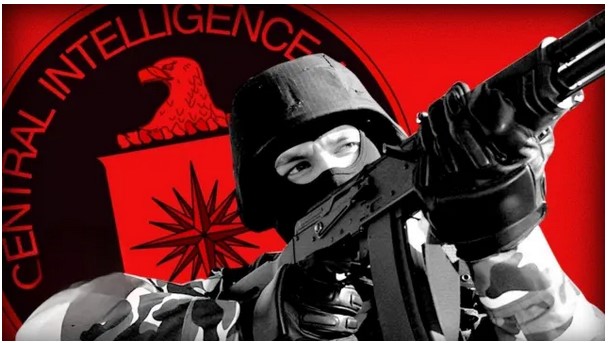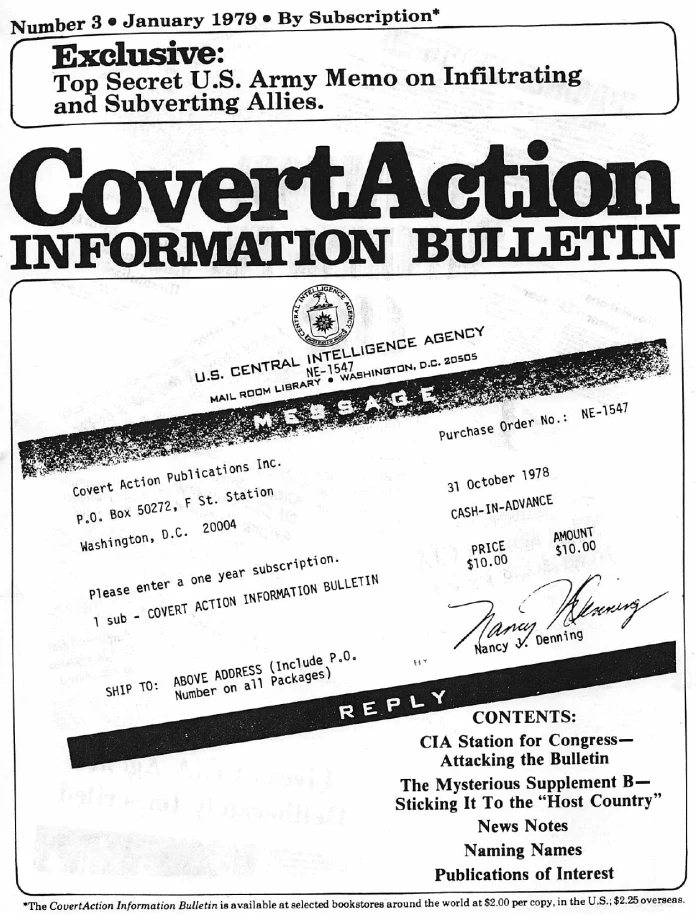by Denis Voltaire, Activist Post:

(CAM) Criminal trials and investigations in Europe confirmed that top-secret “Supplement B” to U.S. Army Field Manual 30-31, contrary to the U.S. government’s oft-repeated denials, was indeed an authentic document.
FM 30-31B first surfaced in Europe in the 1970s and was long suspected to be used by U.S. and host countries’ intelligence as operational guidance for violent anti-Communist destabilization, including acts of terrorism.
TRUTH LIVES on at https://sgtreport.tv/

U.S. intelligence claimed consistently that the document was a sophisticated “Soviet forgery.”
Investigative findings have ultimately vindicated the first assessment of CovertAction Information Bulletin, among the earliest sources to conclude that FM 30-31B was most likely genuine.

The document in question, the very existence of which is still officially denied, is a classified annex, known as “Supplement B,” to a Field Manual series of the US Army, coded “FM 30-31 Stability Operations—Intelligence.”
FM 30-31 essentially governs the intelligence liaison with countries hosting U.S. troops (HC), with respect to counterinsurgency operations.
The general idea behind it is that HC are friendly to U.S. interests and, absent an external aggression, the greatest security threat to HC would be internal “subversion.”
Dated March 18, 1970, Supplement B to FM 30-31 (“FM 30-31B”) was frequently referred to, eventually, as the “Westmoreland Directive” because it bears the signature of the former Supreme Commander of U.S. Armed Forces in Vietnam, General William Westmoreland.

Since the document was brought to the public’s attention, in the 1970s, it was strongly suspected that FM 30-31B had been used for training and orientation in violent domestic operations, including acts of terrorism.
The controversial nature of “Supplement B” is due to the fact that it calls for and describes highly destabilizing operations in host countries, when the latter show “indecisiveness” in the fight against internal insurgency (to be read, most of the time, against Communism).
A quote from section 11 of FM 30-31B (“Agents on Special Operations”) is indicative: “There may be times when HC governments show passivity or indecision in face of Communist or Communist-inspired subversion/and react with inadequate vigor to intelligence estimates transmitted by U.S. agencies. […]
In such cases, U.S. Army intelligence must have the means of launching special operations which will convince the HC governments and public opinion of the reality of the insurgent danger and of the necessity of counteraction.
To this end, U.S. Army intelligence should seek to penetrate the Insurgency by means of agents on special assignment, with the task of forming special action groups among the more radical elements of the insurgency. When the kind of situation envisaged above arises, these groups, acting under U.S. Army Intelligence control, should be used to launch violent or nonviolent actions according to the nature of the case.” [Emphasis added.]
In retrospect, that quote describes almost exactly what multiple criminal investigations in Europe exposed as a pattern of involvement of intelligence agencies in the activities of extremist groups, responsible for high-profile cases of terrorism during the Cold War.[1]
It is a fact that FM 30-31B first surfaced in either NATO countries (Turkey and Italy), or countries that had a strong political-military alliance with the U.S., such as Spain (the country became a NATO member in 1982).
In January 1979, CovertAction Information Bulletin (C.A.I.B.), the predecessor of CAM, was one of the few U.S. sources to cover the story critically and publish a copy of “Supplement B.”[2]




